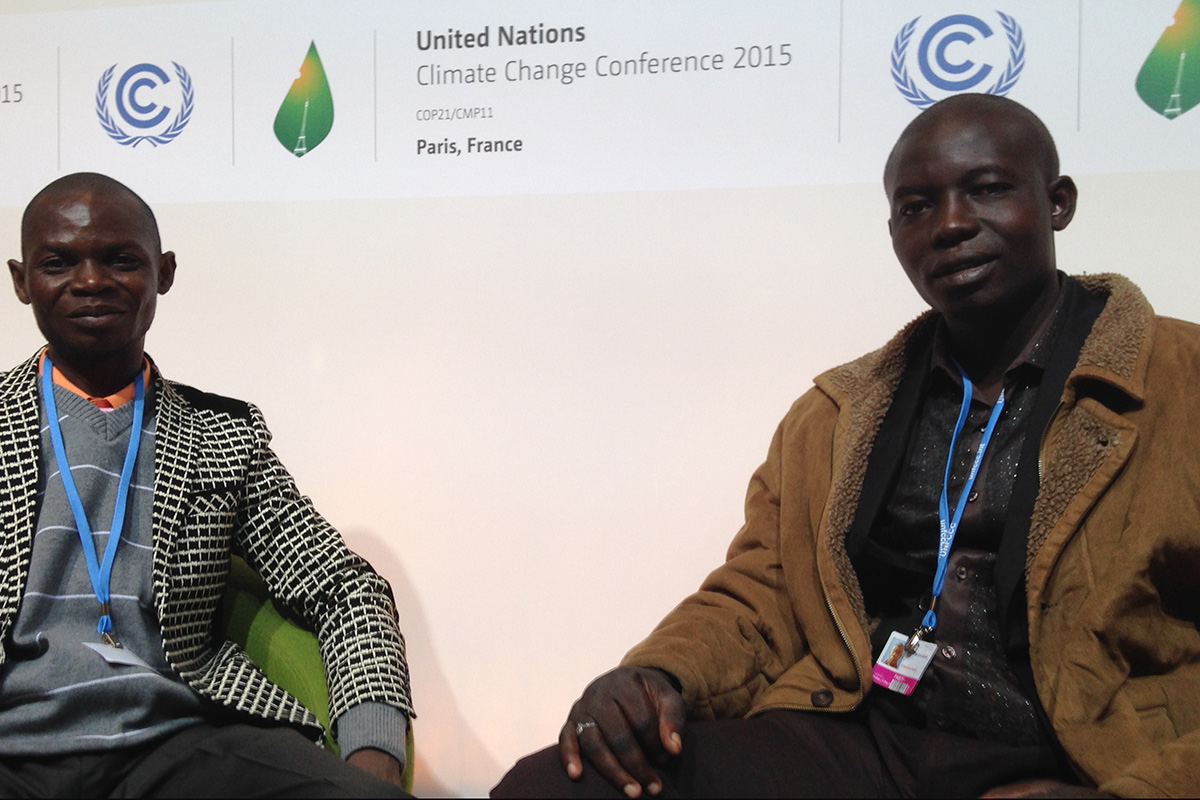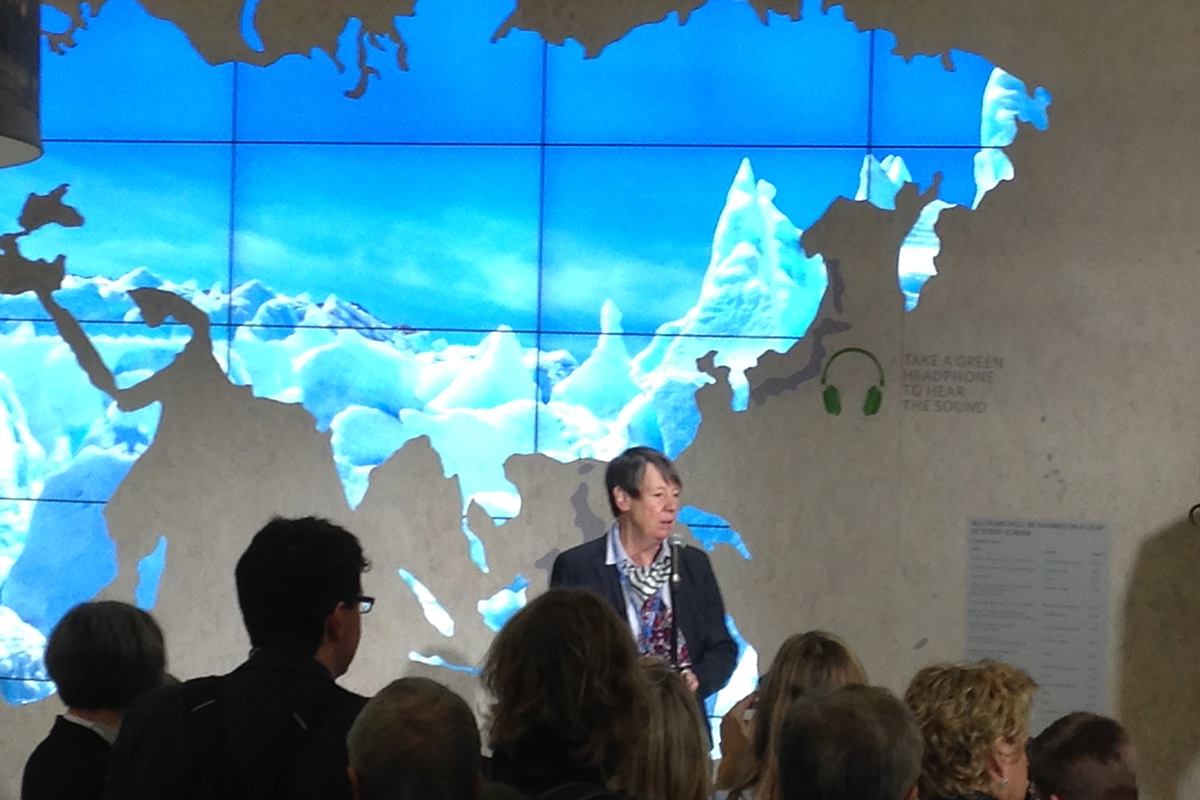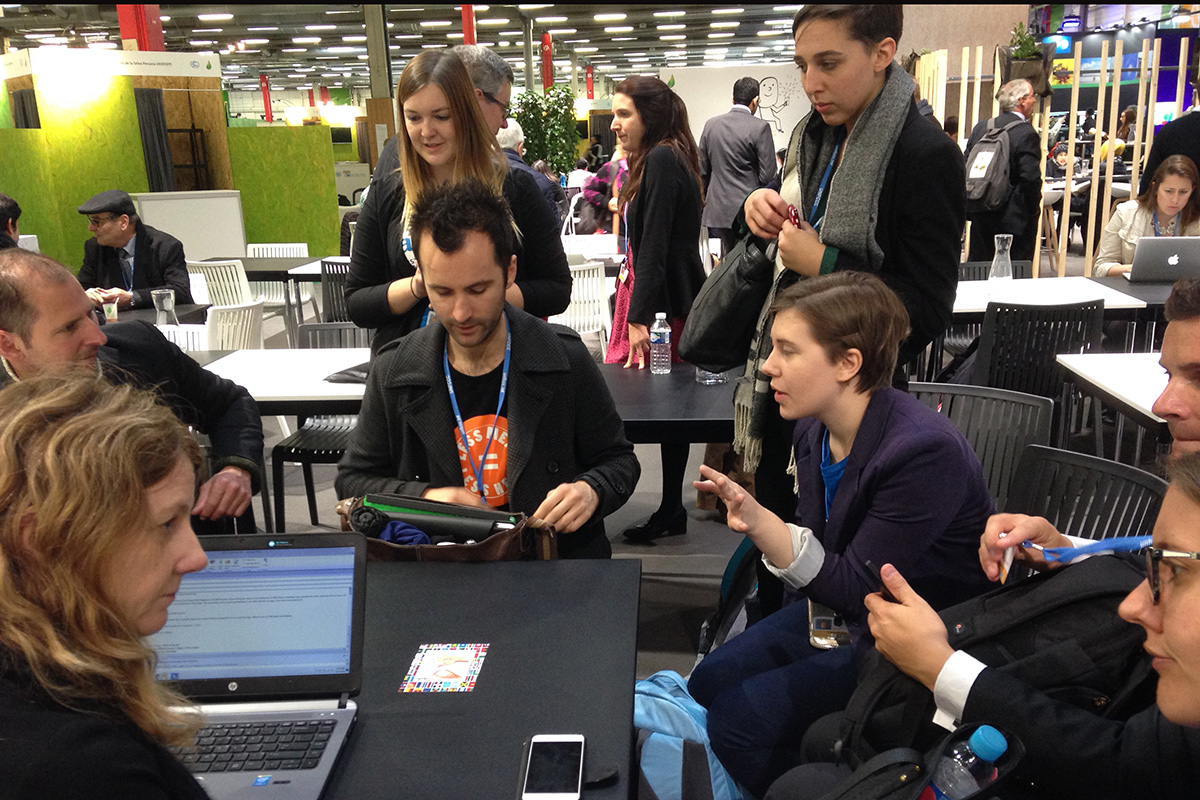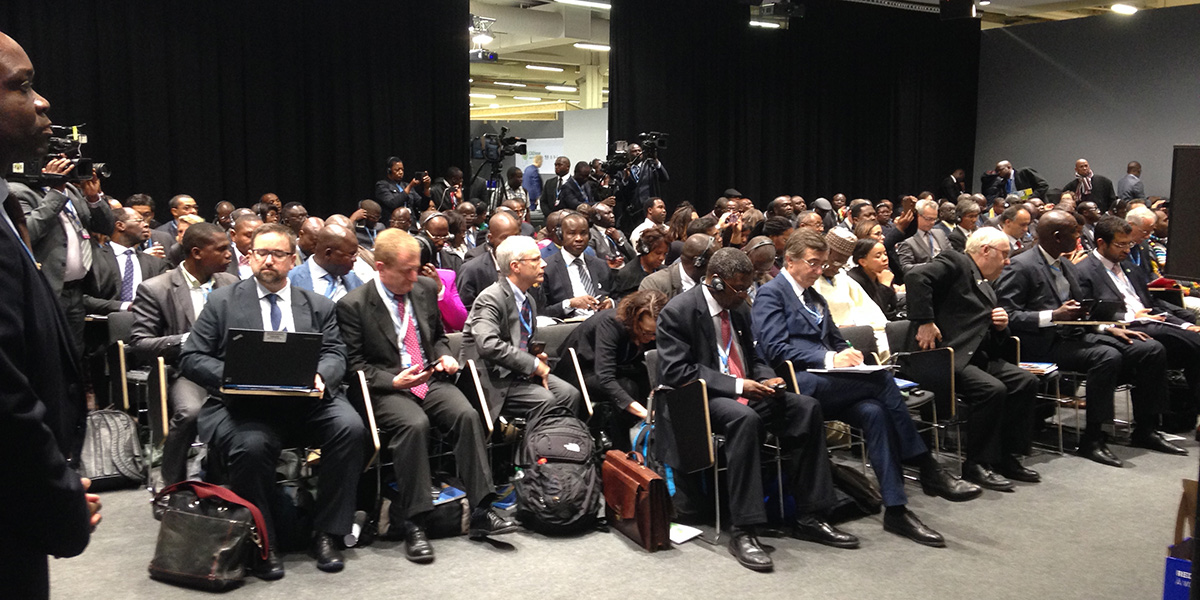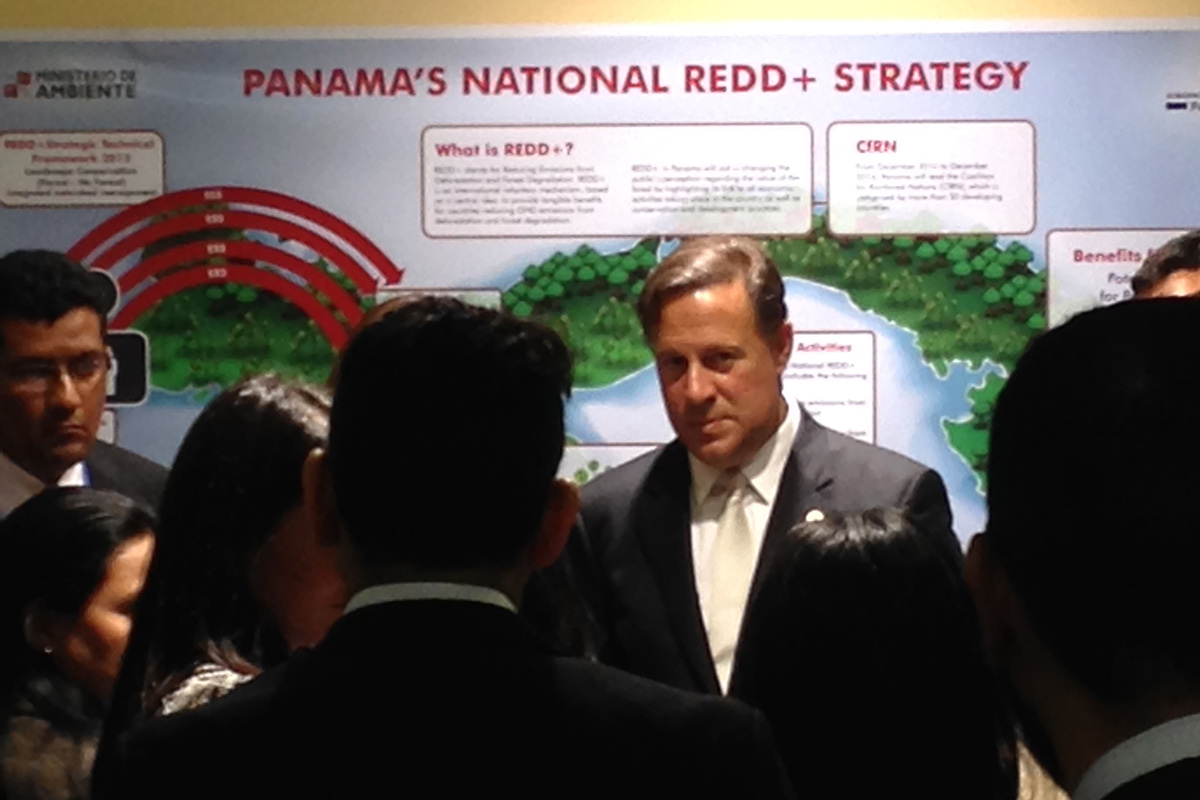An early start, walking with the AYCC/SEED crew to Gare du Nord under streetlights and a sinking moon, since we’d heard it might be difficult to get in today with all the leaders in town.
On the shuttle bus (navette), I met Yhro from Niger. We discussed deforestation, desertification and the unsustainable use of groundwater (nappe phreatique).
My entry into Le Bourget COP21 venue was slow while security officers took an inordinate interest in the Catholic Earthcare and Multifaith SA banners, but I was allowed through once they’d been closely scrutinized and deemed harmless.
Fascinating hour watching the level of expectation build among the media and others gathered to hear country leaders make their pitch to the world. Delegates like me with observer status only could not attend the Plenaries, so I soon moved on elsewhere.
Tree loss across the African continent registered loudly in my ears today. I heard tales of heroic efforts to encourage the next generation and reverse the impacts of deforestation, disenfranchisement and desertification. It put human faces to that heroism to meet Yyro and the slender, steel-willed Djeneba Coulibally who’ve planted hundreds of thousands of trees in Niger; Desire Ngaibona, focal point for the Global Environment Fund (GEF) and Gervil Samedi, president of youth environment movement from the Central African Republic.
Cecilia Mrho, from Bioko Island in Equatorial Guinea, added the vital importance of caring for the water cycle and all that flows from it.
The World Bank released a business plan for accelerating climate-resilient and low-carbon development across Africa, recognizing the inextricable links between agriculture, food security and climate change with a promise to raise $16 billion in climate finance by 2020, including funds from private co-financing.
Yet it will be people on the ground, like my new friends above, that will breathe life and hope into the efforts needed at the frontline to tackle climate change.
During the afternoon, I caught up with snippets from individual Heads of State streamed live on the UNFCCC website. Snapshots below provide a flavor of the committed language; but the proof of the political pudding will be the actions that follow Paris.
Please note these brief vignettes are from my rough scribbled notes and may not be reliable. But they will give an indication of priorities:
Lesotho: Is suffering drought, floods and crop losses, so adaptation must be prominent among COP21 outcomes, along with mitigation, loss and damage, climate finance, technology transfer and capacity building, consistent with IPCC scientific findings.
Madagascar: Is in the middle of a massive loss of biodiversity, with climate change exacerbating existing problems affecting 600,000 people with social disruption.
Samoa: Is facing unimaginable challenges with rising sea levels, saltwater incursion into water supplies, so addressing their demands for loss and damage is essential.
Greece: Believes we need to enter a new era of peace, recognizing the need for ecological awareness and sustainable society. We’re here not to speak about why but to decide how we will act on climate. Developing carbon-efficient transport as a maritime nation.
Congo: Polluting countries never accepted the need to shoulder their responsibilities.
2 ecological boundaries are vital – 25 million square kms of natural forest, the global lungs, and 2.5 million square kms of certified forest. We must pay particular attention at this time or risk seeing humanity and our human environment wiped off the face of the earth if we do not act swiftly; we absolutely must reverse it here and now.
Moldova: we have a joint commitment to a global response to climate change. In the 2030 sustainable development plan, everyone agreed to make our climate safe for all. Greenhouse gas emissions insignificant given industrial decline and political crisis, but committed to 20% renewable energy. The future of the planet in our hands, so more than ever we need to take shared responsibility.
United Kingdom: Let’s reverse the argument. If we say to our grandchildren, it was all too difficult in Paris, they will ask “What was too difficult?” Difficult to agree to 2o when 97% of scientists agree on survival limits? Difficult to agree on a legally binding agreement when 75% of countries already have legally binding climate legislation? Difficult to agree to measurement and verification if we agree over time to ensure that we deliver what we said we would do? Difficult to transfer technology from rich to poor countries?
None of this is difficult; it’s do-able. So we should work together and do it.
Pakistan: I believe we just need the right mix of flexibility and foresight.
Mali: Thanks to Allah the Compassionate.
Everything has been said. The scientific path is clear
Republic of Panama: (Coalition of Rainforest States) calls for a new green industrial revolution, but this time one that is built on renewable and sustainable goals, guided by innovation and shifts towards smart energy storage.
From others, I heard Malcolm Turnbull presented Australia’s case in three minutes:
- Ratification of the Kyoto Protocol 2
- Doubling of R+D investment with the Mission Innovation initiative
- At least $1b in climate finance over the next 5 years (from existing aid budget).
Plenty of room to move in an upward and ambitious direction from here.
Humanity is at the Crossroads: “Taking Climate Change To Heart”
For video and story updates on the COP21 Climate Conference in Paris, visit newint.org/live/paris – the New Internationalist media hub #NICOP21.
See also the New Internationalist magazine special issue on COP21. It discusses what a good outcome would be on the major issues under discussion.


